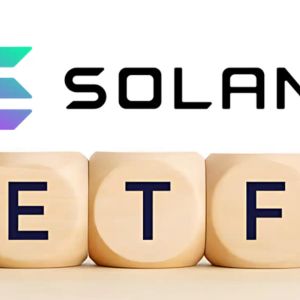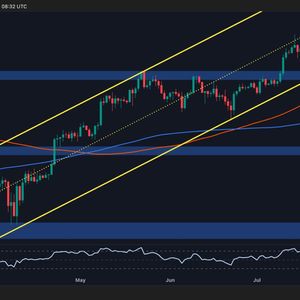The Cboe BZX Exchange has submitted a proposal to the US Securities and Exchange Commission (SEC) to list the Invesco Galaxy Solana ETF, a significant step forward in the evolution of investment products for digital assets. The exchange-traded fund (ETF), a joint venture between the leading global asset manager Invesco and the widely-known crypto-focused financial company Galaxy Digital, is designed to offer investors regulated, direct access to the performance of Solana (SOL), one of the fastest-growing Layer 1 blockchains. What sets this fund apart is its built-in staking component. If approved , it would mark the first US-listed Solana ETF that directly holds the digital asset and stakes a percentage of its SOL holdings with certain validators to create a revenue stream. The staking rewards will be considered income to the trust, increasing its returns and giving investors an additional value layer that traditional ETFs, which are used as a proxy for crypto ETFs, don’t usually offer. To provide an accurate price for Solana, the ETF will use the Lukka Prime Solana Reference Rate, which is updated every 15 seconds. This price reflects various spot market prices for large and small exchange platforms like Binance, Coinbase, Kraken, and OKX to provide an accurate bitcoin price. Cboe BZX defends Solana’s market integrity in SEC filing In its filing, Cboe BZX made a full case for permitting the Invesco Galaxy Solana ETF to be listed on its exchange. A core argument favoring it is Solana’s strong market structure, which the exchange has said makes the asset less susceptible to price manipulation. This issue has haunted previously rejected crypto ETFs in the eyes of the SEC. Cboe noted that Solana is traded globally and 24 hours a day on a mix of decentralized and centralized markets, creating a fragmented market that makes it tough for any one actor to manipulate prices. Today’s 24-hour trading volume of Solana is $2,784,786,760, which means it is more liquid and less likely to be manipulated. Although CME introduced futures on Solana in March 2025, the exchange said that trading volumes have not yet achieved the “material” threshold usually favored by regulators for price discovery based on derivatives. “SOL’s spot market is already a mature, liquid, fair, and transparent market that has sufficient liquidity to support an ETP product,” Cboe explains, citing active arbitrage systems and the lack of insider-held information. This line of reasoning is based on the SEC’s recent approval of spot Bitcoin and Ethereum ETFs , where this type of reasoning was accepted. Cboe maintains that market surveillance agreements and a clear valuation solution will address fraud and manipulation concerns and lay the foundation for the SOL ETF. Canary Capital drives growth in staking-based ETFs The Solana ETF filing comes on the heels of another major filing: Cboe BZX filed its application to list the Canary Capital Staked Injective ETF, driving home the increasing demand for staking-focused investment products. If approved, the ETF would own Injective Protocol’s INJ tokens and stake them to produce excess yield for the fund. The ETF would be subject to the same two-step review process as other funds based on digital assets: first, the SEC has to acknowledge the filing, and then there’s a public comment and review period. It would be one of, if not the first, such staking-enabled ETF to relate to a decentralized finance (DeFi) protocol, demonstrating that the asset class is growing beyond Bitcoin and Ethereum. These developments reflect a larger trend in the industry. Fund issuers and exchanges alike are growing confident that the SEC is willing and anxious to rubber-stamp the approval of digital asset ETFs, particularly when they include well-tailored custody, pricing, and staking features. The proposals for the Solana and Injective ETFs aren’t simply two more discrete products: they are a sign that the financial system is starting to accommodate blockchain-based assets alongside more traditional mainstream investments. KEY Difference Wire helps crypto brands break through and dominate headlines fast







![[LIVE] Ten Years of Ethereum: From Smart Contracts to a Global Financial Layer [LIVE] Ten Years of Ethereum: From Smart Contracts to a Global Financial Layer](https://resources.cryptocompare.com/news/52/49239922.jpeg)








